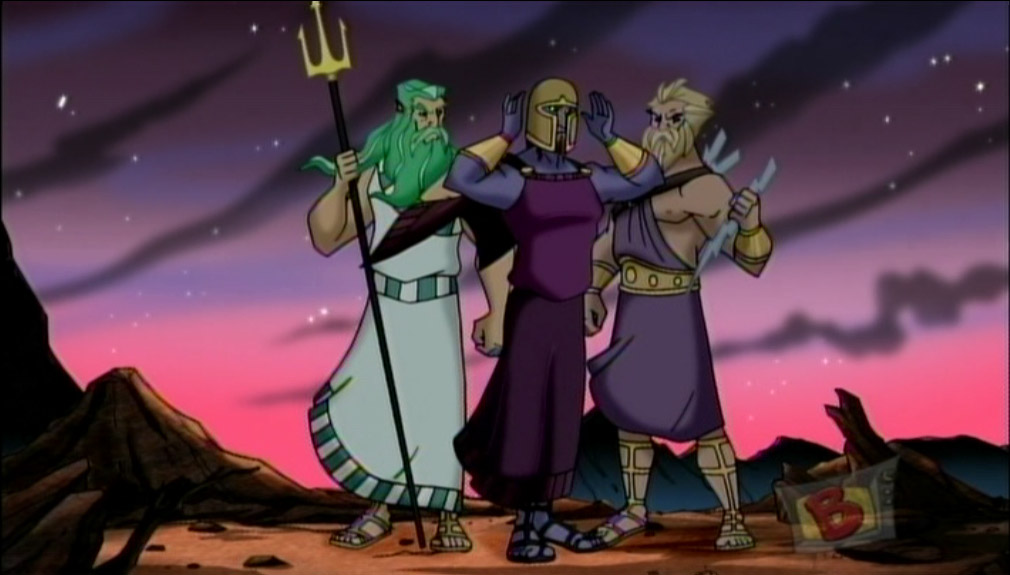
With my rather Catholic mind, I find the borderlands between monotheism and polytheism not uncomfortable. We have the Trinity, but then also all the Virgin Mother and the Saints, who often play the role that the local gods played before evangelization. In only thinly Catholic places like South America, you can find the saints actually just fronting for the gods.
BTW, The surface likeness between the Father/Word/Spirit Trinity and the Brahma/Vishnu/Shiva triad and between Christ as the Incarnate God and Krishna as the Avatar of God are only surface likenesses. (Like the orthodox Trinity and the Mormon "trinity.")
In my little piece on Trinity Sunday, I opined that even though the doctrine is written in Greek philosophical language, it asserts ideas that the Greeks would find bizarre. What would have been much more Greek would be the kind of mono and poly theistic style of India, where a primordial unity reveals itself in time in multiple aspects. The old image of the ray of white light refracting through a prism into many colors. Modalism is the Christian variety and was rejected by orthodoxy long ago.
But like a lot of heresies, it has its appeal. Back in my more focussedly Gnostic days, my own theogony was based on a kind of Hegelian devolvement and reintegration of divine Aeons, Gnosticism's language for its very Greek modal mono/poly theism: the Primal One becoming Two, then producing their Fourfold, these Six in One then splitting into two antagonistic Triads which eventually re-integrate into a differentiated Unity. Ah, the religion of a Five!
In these days of the decline of the West, the dissipation of men, part of the blame can be laid at the door of Christianity. Now for a thousand years +, Christian Europe produced plenty of real men in abundance. As it played out, however, it gave birth to what we now call liberal democracy. Not a success in the long run. Shoots itself in the foot. But, to be fair, as my old Brooklyn Irish grandma used to say, "All human things, given time, go badly." You can see where I inherited my optimism.
So, inspired both by the Indians' god-for-every-occasion, my memory of the GrecoRoman and Nordic mythologies --both of which I absorbed like a sponge in my middle school years-- and even the nifty Seven Gods of Game of Thrones, I am finding it kinda amusing to recreate a male pantheon of Twelve Gods corresponding to the twelve masculine archetypes I keep finding, the combinings, permutations and cyclings of which pretty well account for men as we know them: Father, Warrior, Hunter, Judge, Joker, Laborer, Technician, Artisan, Poet, Shaman, Trader and...not so sure about whether Mentor, or Healer, should be one. Or a Friend.
Greece, Rome and Germania pretty well already provide gods, demigods and heroes for these archetypal modes already, and with the vividness of natural life. Christianity once was hospitable to these, both unconsciously in popular piety of the saints and more consciously in the Renaissance. Archetypal psychology was onto that, but got swallowed up in the Boomerism of its creators. Maybe someday another happy miscegenation will help us transcend our present morass.
--


1 comment:
Clarify "miscegenation." I know what it refers to, but I don't think that's how you mean it. Do you mean a cultural union between the Greco-Roman world (and later the Germanic world) and Christianity? If so, what culture would be the most likely candidate?
I think you have a new religion to obsess over. You seem to have India on the brain as of late. I have too, as a matter of fact. :)
I have a similar but different fantasy pantheon, borrowing names of historical gods for archetypal reference points. Apollo for logic and teamwork; Ares for hunting, sports, combat; Hades for the inner life and philosophy; Hermes for enjoying life (don't have a more precise term; not sure what that means!); Dionysus for sexuality and romance; Osiris for faith and religion; Poseidon for emotions, art, and craftsmanship; Zeus for leadership. Bases covered?
-Sean
Post a Comment